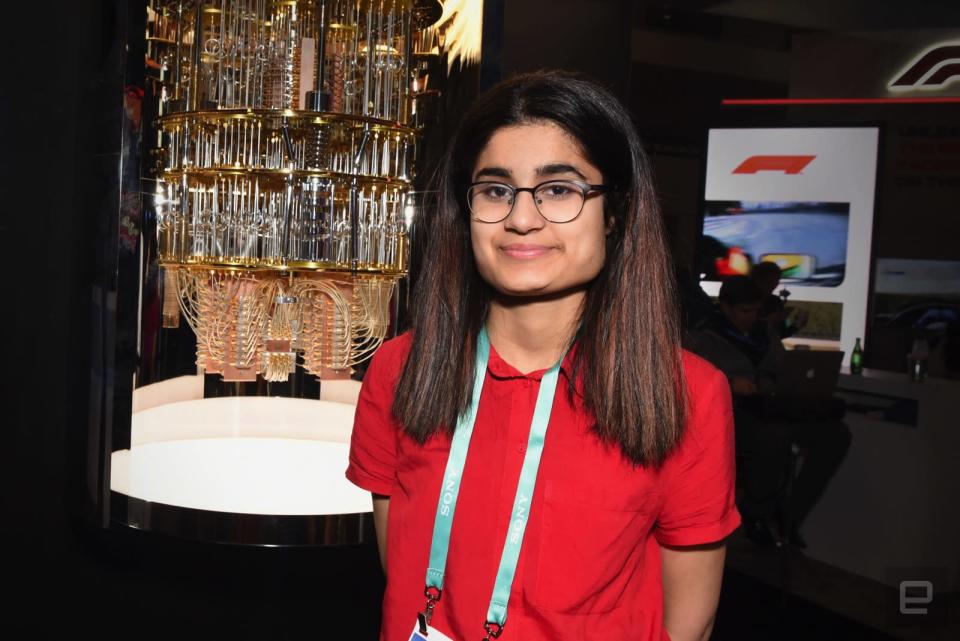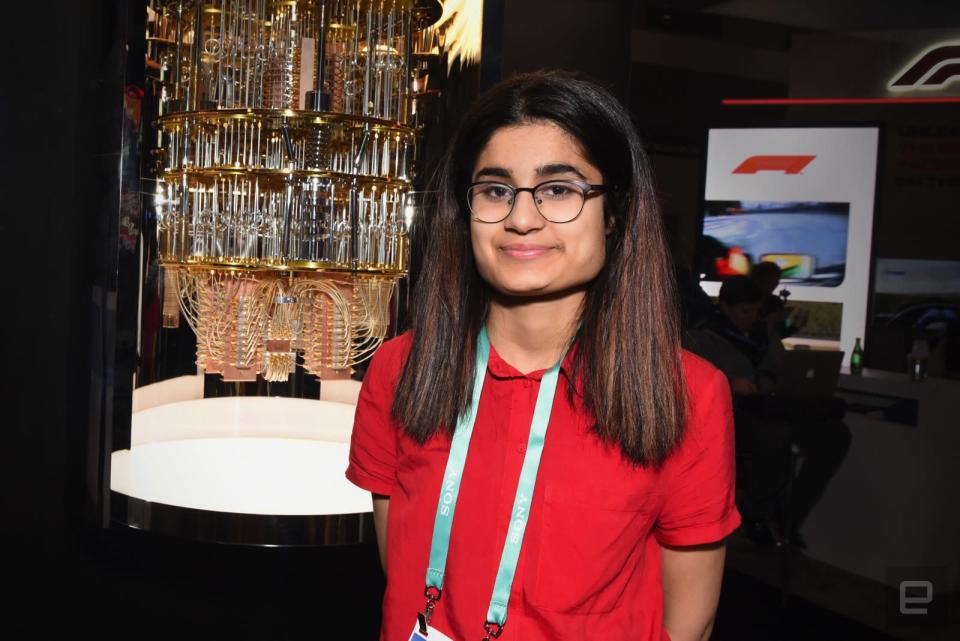The teenager who's at CES to network
But also see the quantum computer.
It's not that Alishba Imran isn't impressed by her tour of Zappos HQ, the Disneyland of corporate campuses, with its "zapponians" who earn "zollars" and play "zing zong" on breaks. But she might not see herself working at a big corporation like this.
Her goal is to be "influential." She describes herself as a blockchain and machine learning developer and researcher and sees her future in health care and finance infrastructure. She chats about fractional ownership and the direction of 5G as well as stoicism and first principles. She is 16 years old.
"I'm really interested in meaningful work, and I think the best way to do that is in a startup," Imran says. Eventually she wants to run her own company, perhaps serving the developing world. College may or may not be part of the equation, at least not before a gap year.
This is Imran's first time in Las Vegas, first CES and somewhere between her 10th and 15th tech conference in the past year, she thinks. She flew here from the suburbs of Toronto -- where her parents moved from Pakistan when Imran was six -- to receive an award as a "Young Innovator to Watch" from Living In Digital Times. Many of the winners turn out to be children of immigrants, says LIDT founder Robin Raskin, and this year's teenagers also developed screening for respiratory diseases and an app for sexual-assault survivors.
Imran's project HonestBlocks uses blockchain to track health care supply chains and prevent counterfeit medicine. She came to Vegas with her chaperone Navid Nathoo, co-founder of the Knowledge Society, a program for talented kids, which Imran credits with giving her a direction beyond the pointlessness of school clubs and grades.
In school, she even started a nonprofit for girls in STEM but soon realized she didn't want to be standing on stages instead of solving problems. "I didn't feel my work was making a real impact," she says. "Doing events will only go so far." She tells me it'd be good to write this article about what she was like then versus now.
"People are impressed by that?" she says, quite seriously. "The only cool thing is the quantum computer."
On Wednesday, Imran roams the convention center, an ocean of middle-aged men. Her prime goal is to network. "That's the only utility in conferences," she says. There's a concentration of experts on emerging tech here, and she has a list of relationships to build, with Google, Uber and IBM.
Also, she's psyched to see the quantum computer, a regular CES appearance. "It's gonna be an iconic picture," she says.
First, the networking. She meets a blockchain expert at IBM, gives her standard intro and listens with arms folded, legs crossed, standing upright. "You definitely know your stuff," says the man. "How old are you?"
She tells him. He tells her to apply to IBM.
"You definitely know your stuff," says the man. "How old are you?"
Off again, through the Las Vegas Convention Center. Imran walks past Sharp's 90-inch transparent TV, attendees buzzing all around.
"People are impressed by that?" she says, quite seriously. "The only cool thing is the quantum computer," she adds, more in jest this time.
Eventually, she finds the glistening chandelier of a machine. She takes the photos and texts Nathoo her excitement. She talks to a quantum consultant and notes down the name of a paper about lithium-sulphur batteries. A man appears -- several earrings, mildly spiked hair -- and says he helped assemble the quantum computer.
"Can you explain how it works?" Imran asks.
"What do you want to do first, qubits or cooling?" he says.
She replies: "Let's do qubits."

 Yahoo Lifestyle
Yahoo Lifestyle 

